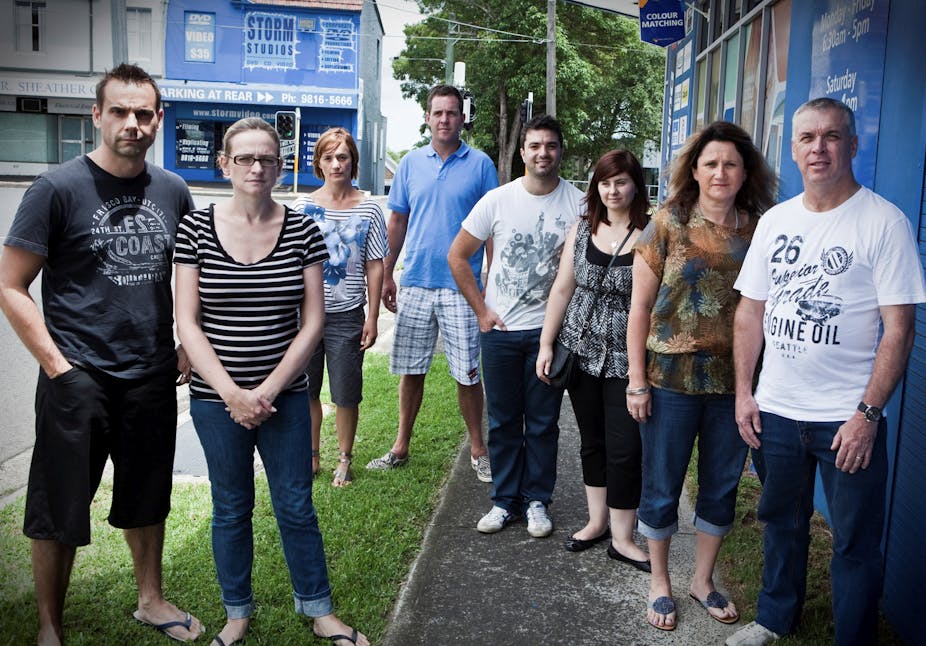Can a floundering relationship be saved in eight weeks using “science”? Premiering tonight, the new ABC series Making Couples Happy sets out to answer this very question.
The show follows four “ordinary” couples at different stages in their lives but with one thing in common – unhappy marriages. Three experts – a clinical psychologist, a counsellor and sex therapist, and a mind-body specialist – use “science” to provide them with strategies they can use to improve their happiness and thereby, it is assumed, save their relationships.
But, is happiness what’s important for the maintenance of a relationship? And will these relationships last if the couples become happier or would they have lasted anyway?
It’s interesting to note that one unhappy couple “managed” to stay married for 29 years. Indeed, research shows that happiness is not required for individuals to stay in relationships where they’re not happy. Some even stay in abusive relationships. There are many reasons why people stay and they span everything from being committed to the relationship to having no viable alternatives.
Despite this, the interest in this program is likely to be high because it presents a chance to see “warts and all” what problems many couples face, and how (and if) they can be “solved”.
We are reminded that a third of all Australian marriages end in divorce and that happiness (or at least satisfaction) is linked to physical health. So it’s important for our health and for society that we’re happy in our relationships.
The couples face a range of problems including poor communication, unrealistic relationship expectations, a lack of balance between work and family life, financial issues, the strain that young children can place on relationships, differences in parenting style, and a lack of intimacy.
So, what techniques do the experts suggest to help them “move forward” in their relationships and, perhaps, “save” them?
The couples are asked to engage in a number of tasks that highlight, among other things, what’s “wrong” with their relationship and where the couple are not a “team”. We’re shown the effects of positive and negative feedback on their emotions and performance, which highlights the way criticism makes us feel and act.
We see how non-verbal communication shows how we feel about people we’re interacting with – the couples are told that even if they don’t want to do something, they should try to do it because the feelings will come, so they have to “fake it until you make it”.
For the most part, a “one-size-fits-all” approach is used with all of the couples, but sometimes, the impact of what we personally “bring” to our relationships is also shown. People who are sensitive to rejection, for instance, interpret ambiguous situations as signalling that their partner is rejecting them whereas others who aren’t so sensitive do not. Such individual differences need to be taken account of when psychologists and counsellors work with couples.
Despite this, there are some useful messages we can all take away from the series and they include:
the need to balance work and family commitments,
the impact of children on relationship satisfaction,
how we interpret our partners’ behaviours is important for how we feel, and
the expectations we have of our “ideal” partner and relationship.
The series frames these messages in terms of research findings, but they’re quite simplistic and don’t reflect the complexity found in research.
In relationships of the kind the show is about, there are two people who “bring” a lot to the relationship. The way they view themselves, for instance, and others, as well as the world. Views of self can vary from extremely positive to extremely negative. Others can be viewed as, for example, trustworthy or not. The world can be seen as a benign or hostile place or somewhere in between. These views affect how people respond in their relationships.
And different factors like this interact with each other to make the relationship more than the sum of the two people in it. Some of these factors have a direct effect on relationship satisfaction, some have indirect effects, and some alter the relationship between two other factors.
These complexities (and others, like being unemployed or the gendered nature of housework) make every relationship unique. So whether a relationship will or will not be maintained is difficult to predict – even when people are happy.
The show’s the clear message is that relationships require work and this can be difficult. The four couples are brave, and especially so for baring their souls and lives for the camera. I think this series is worth watching.

